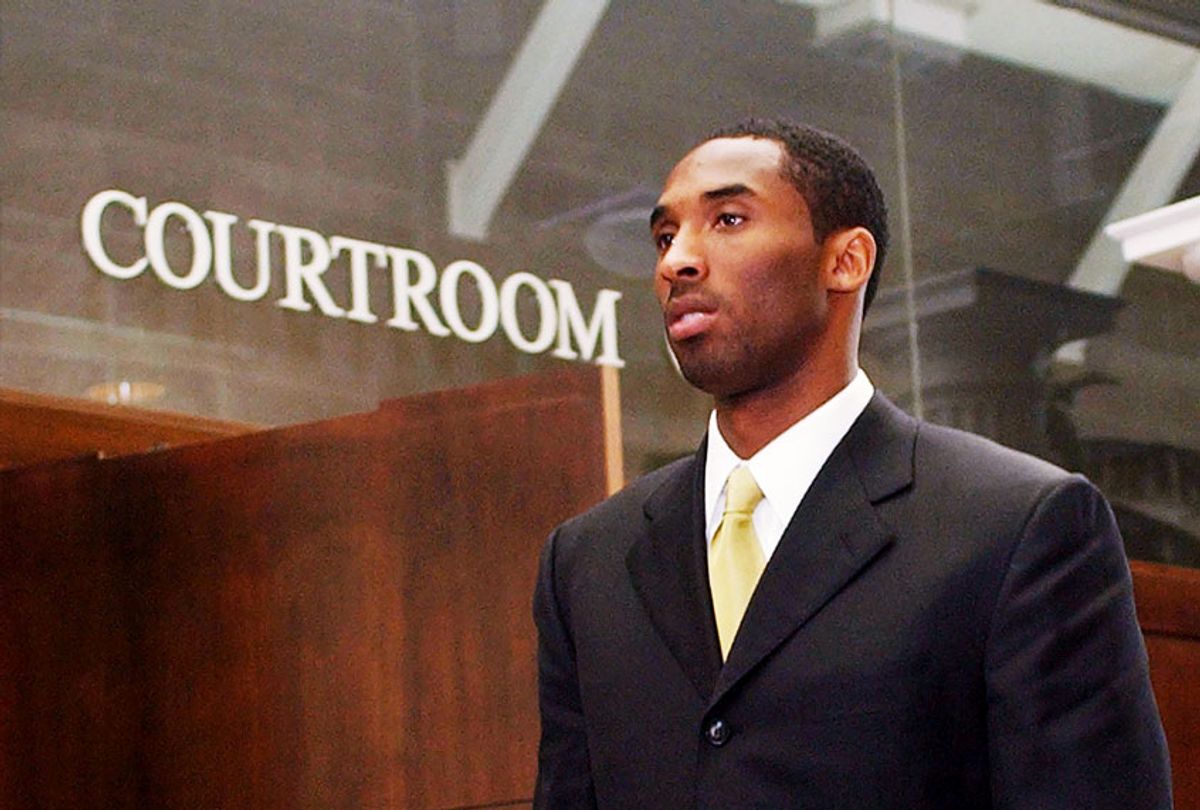Suspended for nothing would end up before the league and PA arbitrators and maybe even in court. The NHLPA fights suspensions on behalf of players all the time, but we see every pro league successfully win lawsuits over their ability to suspend players. Tom Brady and the NFLPA embarked on a serious legal battle about this and lost.
But we see the league impose long suspensions on dudes who haven't been convicted (yet) of crimes all the time. Most suspensions for DUIs or domestic violence come before the player's action has been weighed in on by a jury.
I see a lot of folks in this thread creating hurdles under the guise of due process, but those hurdles simply don't actually exist and have never existed. It's strange to me that for all of the things players have done to get suspended, this situation is the one where a lot of dudes are speaking up mad about punishments.
You're forgetting the first part of most statutory laws' offense clauses:
That the burden of proof rests on the accuser to prove beyond a doubt (of variable degree depending on the statute and severity) that an offense has been committed.
All these people talking about rapists and whatnot, have already adjudged that the crime was committed, not merely allegedly.
In the case of Tom Brady: that the footballs were deflated and tampered with was determined by the investigation. The question was about Tom Brady's level of involvement and knowledge of the infraction.
That the offense was actually committed was proven beyond doubt during the investigation.
In the case of DUI suspensions, the charging information by the relevant police force will have the statement that a preliminary test was conducted and that the person was found to be reasonably expected to be under the influence.
Normally, subsequent tests are done, and the results of these are included in the charging information.
That something was done is, at this point, a forgone conclusion.
Whether the player can successfully fight off the charges afterwards, or not, the league has some legal standing to suspect wrongdoing.
In the event that the player is found not guilty, the league can defend its position by having relied on the charging information of the police.
In the cases of domestic violence, there is the charging information by the police based on the testimony of the victim.
The leagues can and do cite the charging information in order to defend their position in suspending a player.
Again, in the event that the player is found not guilty, the league has a reasonable basis for having suspended the player in the first place.
In this case, there is no information that the NHL can use in order to base the suspension on. If there isn't enough evidence that the league has been given access to (which is a major violation of due process until the police investigation is completed), then they go out on a long and fragile limb in suspending players and linking them to a heinous crime.
At the same time, the rights of the accused do not outweigh the rights of the victims to not be subject to this type of criminal activity.
It was not taken seriously enough by the alleged victim, and then worse than that by the police force.
That there was a civil suit and that it was settled out of court is despicable in my opinion.
These matters should be taken seriously, with significant resources for the investigatory bodies, and with extremely significant penalties for convictions, and also for proven false accusations. They should also be placed on absolute gag orders and have all parties' personal identifying information cloaked until a decision is made.
At that point, civil suits could be sought and in the event of guilt, the names of the convicted be released for all to know.






